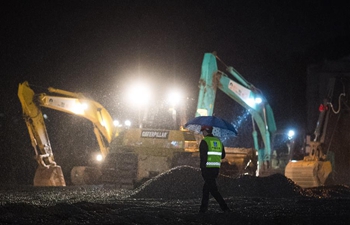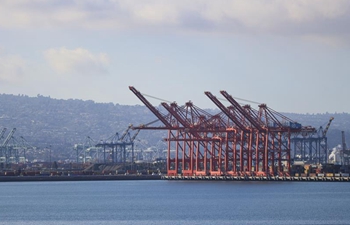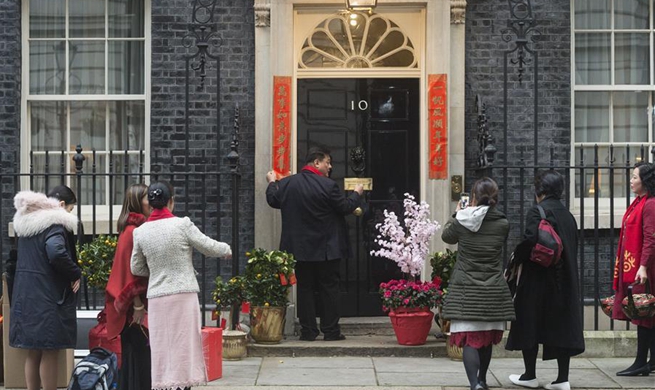ISTANBUL, Jan. 24 (Xinhua) -- Turkey and Germany are drawn together by the common fear of a new wave of migrants from Syria, experts said.
The fear pushes them to seek to preserve a multi-billion-euro deal struck four years ago that helped decrease refugee flows to Europe, they said.
On Friday, German Chancellor Angela Merkel, head of the EU's biggest economy, met with Turkish President Recep Tayyip Erdogan, only a few days after the two leaders held talks in Berlin during a conference on the Libyan conflict.
During a joint a press conference in Istanbul, Merkel said her country appreciates Turkey's efforts in hosting Syrian refugees, hoping the EU will renew the migrant deal with Ankara.
She also said Germany will provide humanitarian aid for the displaced civilians of Syria's Idlib.
Erdogan warned in recent weeks that Turkey, which already hosts about 3.6 million Syrian refugees, will not be able to handle a fresh wave of migrants if Syrian-Russian attempts to retake rebel-held northern Idlib Province were to go on.
Some "400,000 migrants" were approaching toward the Turkish border to flee hostilities in Idlib, the Turkish leader warned Friday.
On the other hand, "the EU has not fully honored its promises within the migration deal, and it seems that they want to throw the issue in the lap of Turkey which has done much more of its fair share in this refugee crisis," Mustafa Nail Alkan, an expert on EU affairs from Ankara's Haci Bayram Veli University, told Xinhua.
The professor also said the EU needed to uphold the refugee deal more than Turkey.
"The deal has prevented migrants to flood into the EU and Turkey was instrumental in doing so," Alkan argued.
Turkey, which says it has spent 40 billion U.S. dollars for millions who fled Syria, is anxious that Brussels will seek to end its financial support once the second tranche runs out.
"We have the feeling that the EU is trying to wash its hands of this migration issue when the 6 billion euro is spent," Faruk Kaymakci, Turkish deputy foreign minister, told journalists, adding the refugee crisis is far from being over yet.
"Turkey cannot handle a new refugee wave from Syria. Our country will not carry this migration burden alone," Erdogan warned repeatedly.
Accessions talks, which were launched between Ankara and Brussels in 2005, are currently in limbo, as the European bloc is strongly divided on how to maintain a relationship with Turkey which is seen by most European nations as a buffer state of strategic importance.
Turkey's willingness to be further involved in the Libyan conflict, siding militarily with the internationally recognized government in Tripoli and a dispute between Turkey, Greece and Cyrus over energy reserves in Eastern Mediterranean could also have an impact on new negotiations, according to observers.
"We think the EU has made efforts but these are not enough. There should have been more support from European nations to Turkey's efforts to host such a huge community of migrants," a Turkish source close to the government told Xinhua on condition of anonymity.

















